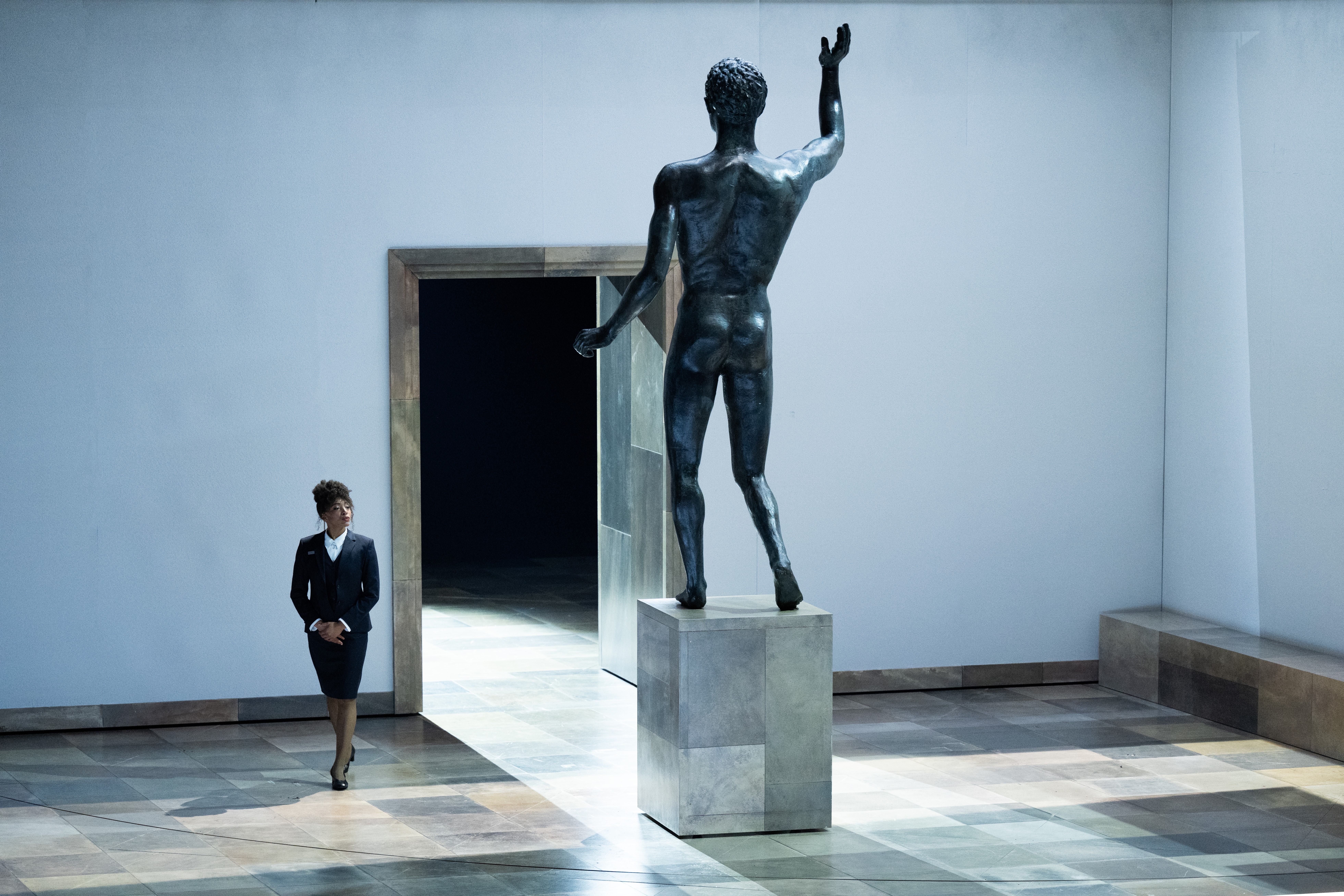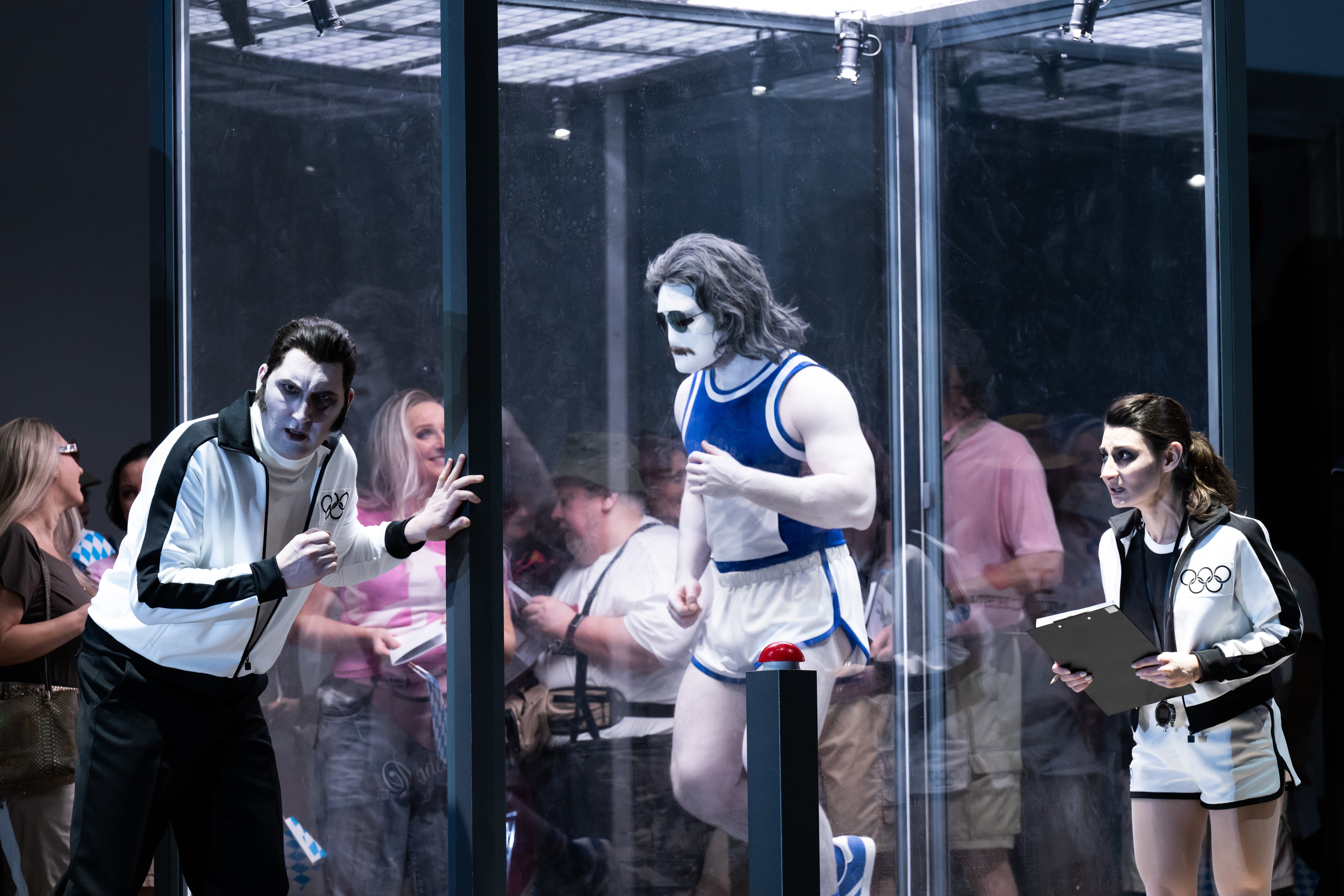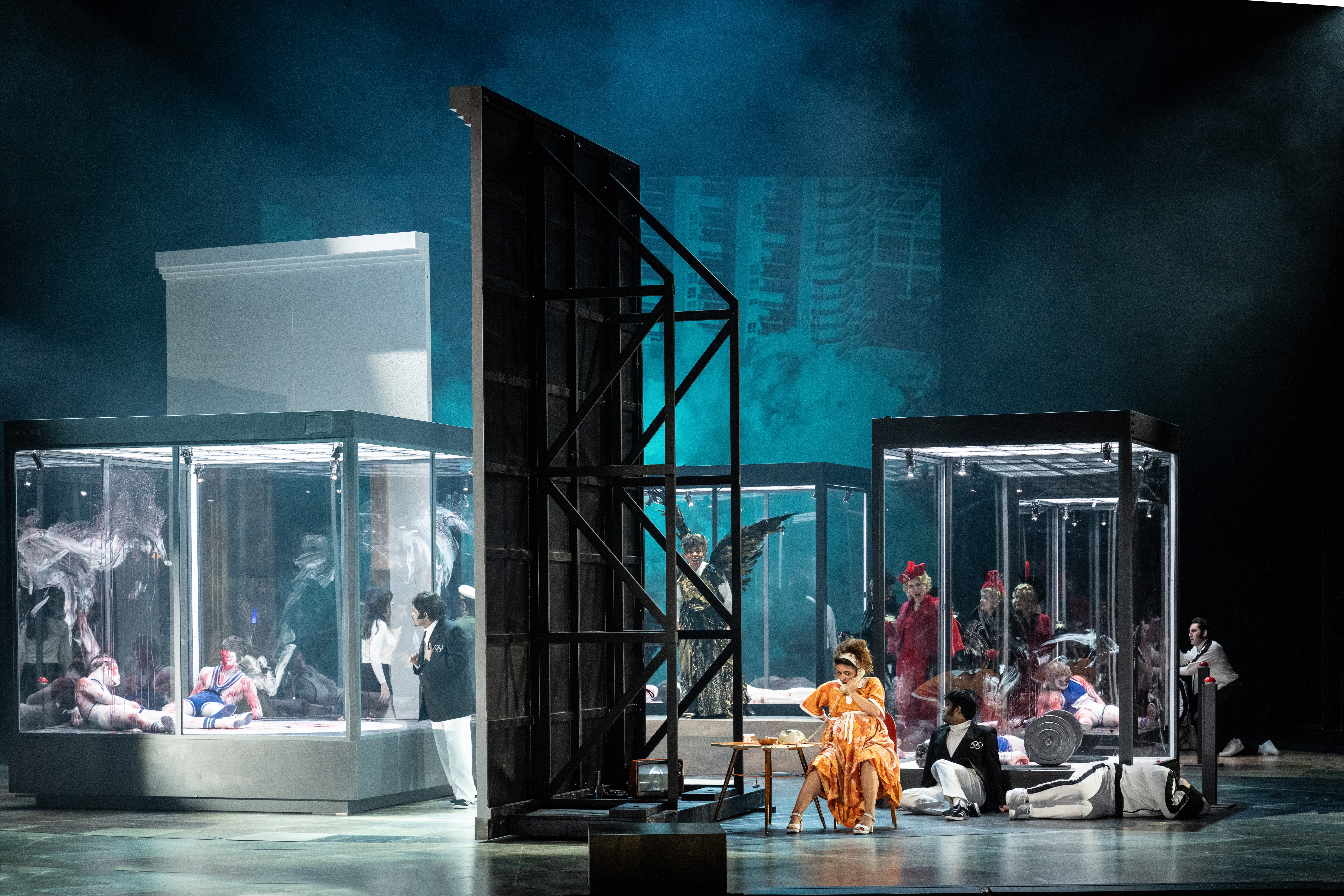A night in the museum: in the martial House of Sports History, the world premiere of ‘Echo 72 – Israel in Munich’ loses its way despite the interesting subject matter. Weightlifters, fencers, wrestlers and runners in museum-like glass cases do as little to save it as the tediously uninspired music.

In 1972, the world was a guest in Munich. The Olympic Games in Bavaria were also attended by athletes from Israel. On 5 September, a Palestinian terrorist commando took eleven Israeli hostages in the Munich Olympic Village. One day later, the hostage-taking ended in a bloodbath due to a completely botched police operation. All the hostages and assassins died.
Michael Wertmüller, who has also written music for Christoph Schlingensief, was commissioned by the Hanover State Opera to set this interesting subject to music, which Roland Schimmelpfennig wrote the text for. The result is a piece (without intermission) lasting 100 minutes, which is tiring at the latest halfway through due to its uniformity and constant repetition of similar sound tableaux with permanent crescendos.

Under the direction of Titus Engel, the pit, with a large orchestra and supplemented by percussion and electric guitar, delivers an onomatopoeic, romanticised, high-pressure music that could certainly have been performed by fewer musicians with its flatness and more precise orchestration.
The chorus in particular, under the direction of Lorenzo Da Rio, performs well and with gripping intensity, which is one of the plus points of the evening. The production (Lydia Steier) and the stage design (Flurin Borg Madsen), which set the play in a museum in retrospect, are also to be counted on the plus side. Many tourists are visiting Munich to marvel at wrestlers and fencers fighting, weightlifters and runners on the treadmill in glass boxes. Dramatic original videos played in the background (Rebecca Riedel, Elisa Gómez Alvarez) provide a fitting touch of the past.

In the vocal parts, which are only labelled with attributions (coach, track and field athlete, pregnant woman, weightlifter), the entire ensemble impresses with balanced, precise and attentive renditions across all parts. Daniel Eggert as the coach with his expressive bass and Ketevan Chuntishvili as the athlete with her beautifully focussed soprano are particularly convincing.
Actress Corinna Harfouch could be won over as a well-rehearsed daytime narrator, who was able to portray deep consternation at the tragedy with an appropriately plaintive tone.